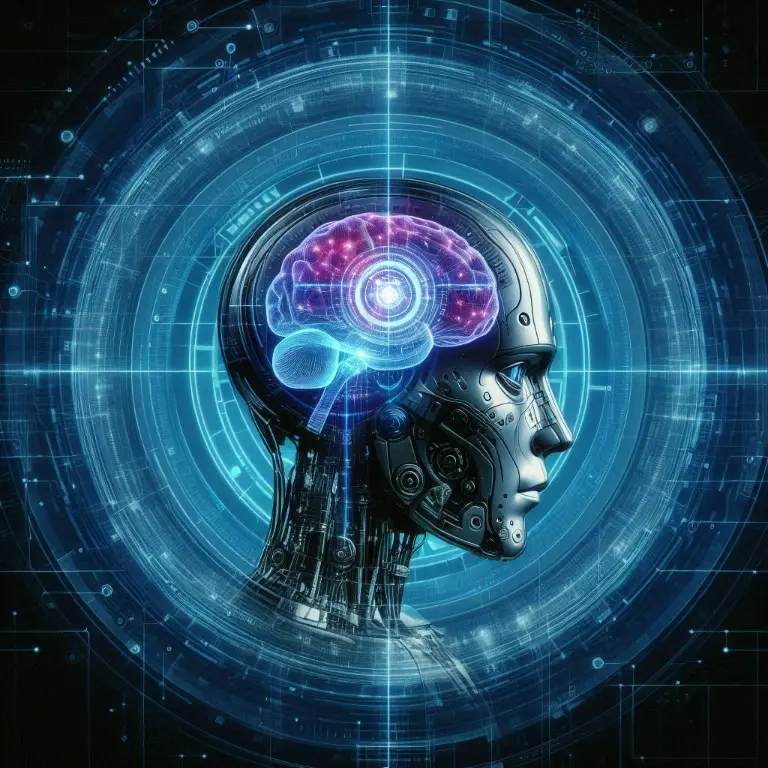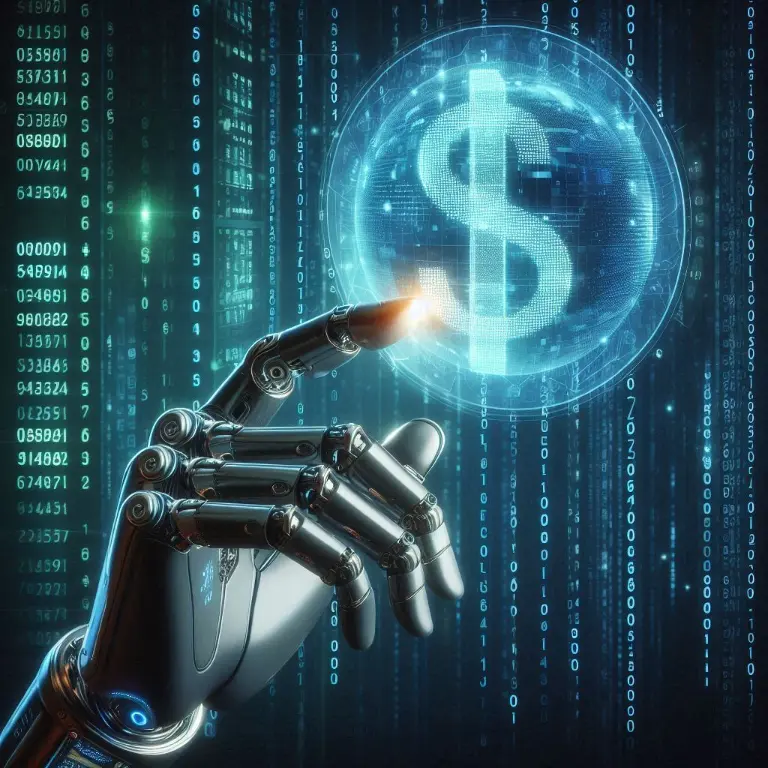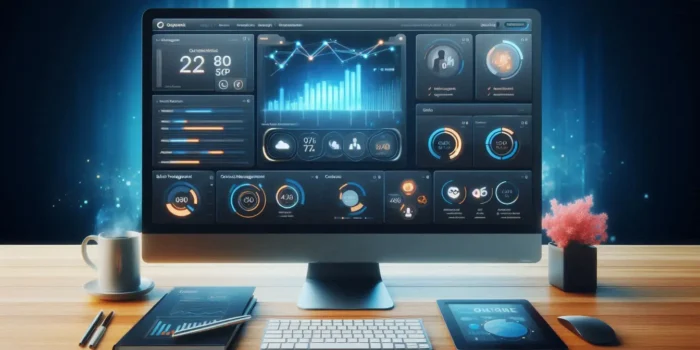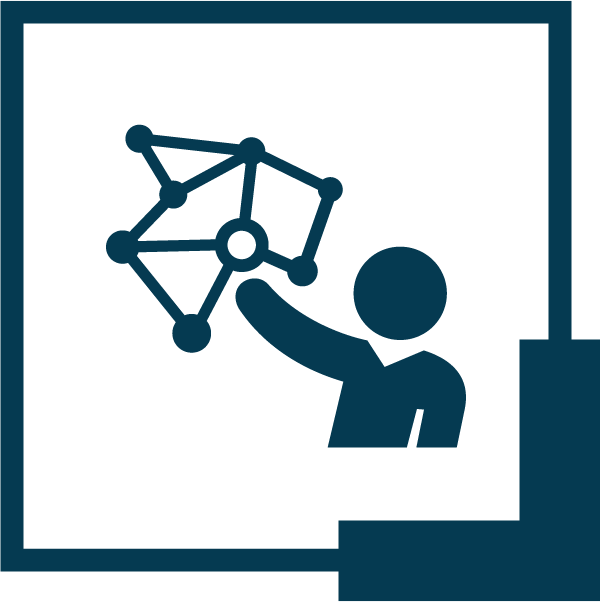The retail industry is undergoing a dramatic transformation thanks to the infusion of artificial intelligence automation into many aspects of the shopping experience.
AI is fundamentally changing how retail businesses interact with customers, manage inventory and more.
In this article, we’ll explore the impact of artificial intelligence on the retail industry and what it means for businesses and consumers.
Let’s start with what automation in the context of AI means.
What is Artificial Intelligence Automation?

Artificial intelligence automation, or AI automation, refers to the use of AI technologies to automate tasks that typically require human intelligence.
This includes machine learning, natural language processing and computer vision, among others. In the retail industry, AI automation helps streamline operations, enhance customer experiences and improve decision-making processes by handling repetitive, time-consuming tasks with greater efficiency and accuracy.
How is Artificial Intelligence Automation Changing the Retail Landscape?
AI is rapidly revolutionizing the retail industry by automating many of the traditionally manual and labour-intensive tasks associated with running a successful business.
Artificial intelligence automation allows retailers to reduce costs while improving efficiency, accuracy, and customer experience.
AI-supported technologies like chatbots, virtual personal assistants, and image recognition are implemented to take on many of the most time-consuming and mundane tasks typically carried out by store staff in the past.
Artificial intelligence automation also helps retailers to get better organized and more productive, so they can focus on more strategic tasks without sacrificing operational excellence.
In addition, AI is being used to provide personalized recommendations to customers, helping them to find the products they need quickly and easily.
Furthermore, AI-driven analytics is used to identify customer trends and preferences, allowing retailers to tailor their offerings to meet the needs of their customers.
Finally, AI-powered automation can help retailers streamline their supply chain operations, ensuring that products are delivered on time and in the right quantities.
Automating Shopping Experiences via Artificial Intelligence Automation

AI is making it possible to offer shoppers an entirely automated shopping experience. AI-enabled technologies like facial recognition and computer vision can be used to identify customers when they enter the store, allowing them to bypass queues and get straight to their desired items.
AI-powered robots can also be used to autonomously fulfil orders, helping retailers cut down on labor costs while improving efficiency and accuracy.
Additionally, AI-enabled virtual assistants can be used to provide customers with personalized product recommendations and advice, helping them to make informed purchasing decisions.
AI can also be used to create a more seamless checkout experience. By using AI-powered facial recognition, customers can quickly and securely pay for their items without having to wait in line. This technology can also be used to detect shoplifters, helping to reduce theft and improve store security. Furthermore, AI-enabled analytics can be used to track customer behavior and preferences, allowing retailers to better understand their customers and tailor their offerings accordingly.
Improving Inventory Management with AI
AI is also transforming the way businesses manage their inventory. AI-powered technology like predictive analytics can be used to accurately forecast demand for different products and adjust inventory accordingly. This helps retailers improve their stock levels while ensuring that they don’t get stuck with excess inventory.
Additionally, artificial intelligence automation can be integrated with robots to automate tasks like warehouse management and order fulfilment, reducing the need for manual labor while optimizing efficiency.
AI can also be used to optimize inventory placement. By using AI-powered algorithms, retailers can determine the best locations for their products in the warehouse or store, ensuring that they are easily accessible and reducing the time it takes to fulfil orders.
AI can also be used to track inventory levels in real-time, allowing retailers to quickly identify when stock is running low and take action to replenish it.
Enhancing Customer Service with AI Solutions
AI-powered chatbots are becoming increasingly popular in retail as they provide customers with an instant response to their queries without the need for human intervention.
AI-enabled virtual assistants can also be used to provide customers with personalized product recommendations and advice, helping them to make informed purchasing decisions.
Additionally, AI-driven analytics can be used to gain a better understanding of customer behavior, allowing businesses to tailor their products and services accordingly.
Artificial intelligence automation includes automated solutions for customer service processes such as order tracking and customer support. This reduces customer wait times and improves customer satisfaction.
Furthermore, AI-driven sentiment analysis can be used to identify customer sentiment and provide businesses with valuable insights into customer experience.
Leveraging AI to Analyze Consumer Behaviour
AI-driven analytics can be used to gain a better understanding of consumer behavior.
By analyzing data on customer preferences, purchase history, and past behaviour, businesses gain valuable insights into consumer behaviour to tailor their products and services accordingly. Therefore, artificial intelligence automation can be surmised as automating the data gathering and reporting process as well.
Additionally, AI-enabled technologies like sentiment analysis can be used to analyze customer reviews and feedback in order to understand their needs and preferences better.
AI-driven analytics can also be used to identify trends in consumer behaviour. By analyzing data from multiple sources, businesses gain a better understanding of how consumer behaviour is changing over time and can use this information to inform their marketing and product strategies.
Additionally, AI-driven analytics can be used to identify potential opportunities for businesses to capitalize on, such as new markets or customer segments.
Personalizing the Shopping Experience with AI
AI can also be used to personalize the shopping experience for customers.
AI-powered technologies like facial recognition and computer vision can be used to identify customers when they enter the store, allowing businesses to tailor their offerings accordingly.
Additionally, AI-powered recommendation engines can be used to provide customers with personalized product recommendations based on their interests and past purchases.
AI can also be used to create a more interactive shopping experience. For example, AI-powered chatbots can be used to answer customer questions and provide product recommendations in real-time.
Additionally, artificial intelligence automation often includes virtual assistants to help customers navigate the store and find the products they are looking for.
Optimizing Pricing Strategies with Artificial Intelligence

AI-enabled algorithms can also be used to optimize pricing strategies for retailers.
By leveraging predictive analytics and machine learning, businesses better understand consumer behaviour and buying patterns in order to determine optimal prices for different products or services.
Additionally, AI-driven technologies can also be used to monitor competitor prices in real-time and adjust the pricing accordingly.
AI-driven pricing strategies can also help businesses identify and target customers who are willing to pay more for certain products or services.
By analyzing customer data, businesses can identify customers who are more likely to pay higher prices and adjust their pricing strategies accordingly. This helps businesses to maximize their profits and increase revenue.
The Challenges & Risks Posed by Artificial Intelligence in Retail
Although AI offers many benefits for retail businesses, there are also several challenges and risks associated with its use.
For example, there is a risk that incorrect data or algorithms could lead to incorrect decisions being made by automated systems.
Additionally, there is also a risk of AI-powered systems being exploited by criminals or hackers to steal customer data or manipulate pricing strategies.
Furthermore, there are privacy concerns as customers may not want their data collected and analyzed by AI-driven systems.
In addition, there is also the potential for AI-driven systems to create an unfair competitive advantage for certain businesses.
The Future of Artificial Intelligence in the Retail Industry
It’s clear that artificial intelligence automation is set to have a profound impact on the retail industry in the years to come. AI-enabled technologies will continue to disrupt the traditional retail model as businesses look to harness automation in order to reduce costs while improving efficiency, accuracy, and customer experience. As AI continues to evolve, it will open up new opportunities for retailers as well as customers, allowing them to benefit from more personalized shopping experiences than ever before.
Get in Touch with Segwitz
Connect With Us today to learn how we can tailor AI solutions to meet your unique needs and take your retail business to the next level.





 Booking System
Booking System eCommerce
eCommerce On-Demand Services
On-Demand Services Community App
Community App Ordering App
Ordering App Loyalty App
Loyalty App Online Learning
Online Learning Directory
Directory Marketplace
Marketplace SaaS
SaaS P2P Platform
P2P Platform eHailing
eHailing Healthcare
Healthcare Finance
Finance Logistics
Logistics Education
Education Food & Beverage
Food & Beverage Retail
Retail FMCG
FMCG Sports
Sports Travelling
Travelling Manufacturing
Manufacturing Renewable Energy
Renewable Energy Mobile Application Development
Mobile Application Development Web Application Development
Web Application Development Source Code Review
Source Code Review Internet of Things (IoT)
Internet of Things (IoT) Cyber Security
Cyber Security SegWitz SandBox – Dev-Team as Subscription
SegWitz SandBox – Dev-Team as Subscription SegWitz Streamline – SOP Systemization
SegWitz Streamline – SOP Systemization SegWitz ScaleUp – Tech Transformation of SME & PLC
SegWitz ScaleUp – Tech Transformation of SME & PLC SegWitz StartUp – MVP & Scaling
SegWitz StartUp – MVP & Scaling